Monday: We’re off to a fast week. Paul’s spending the whole day with our community volunteers. There are about 40 of them and they live in all the surrounding villages and help the PSC (HIV clinic) track people who have dropped out of sight. If anyone misses their TB meds for 2 days or their HIV medications for 5 or more days they are put of the list and targeted by our volunteer from their area. At the beginning of June, there were about 47 people on the list but by the end of June, only 8 remained. The shift in the tide came when Paul began using text messages to contact the CHVs as soon as someone in their community missed a follow up. We never would have imagined that people living in rural
Paul gave a talk on the history of HIV in
Tuesday: I am doing a test run of a new data collection system that if it works, may reduce the oppressive amount of paperwork and data collection that needs to be done and reported to MOH (Ministry of Health) every month. It’s tedious but not necessarily boring work. It calls for me to sit in our registration room with Ochieng, filling out forms and taking payment, getting temperatures and weights- and I learn many things:
People who have never seen a bathroom scale often step on sideways or backwards. Many adults try to stand on the dial and one woman kneeled on it.
Thermometers are frightening things when they’re being aimed at your armpit by a Mzungu.
Feet that have never worn shoes are rounder, with toes that are short and splayed.
We have patients who are named Fidel Castro, George Bush, Holy Canaan, Ket Winslet, Jacklin Kenedy, Eunick, Saline, Stalin, Viva and Pissy.
The clinic gives a
Lots of kids as young as 7 come to the clinic alone. Most don't know their own age. They haven't had an adult in their life to keep track of that information. We estimate their age and put it on their record. I wonder if they will now go through life using our guess as their age.
And Ochieng is unflappable. He laughs his way through the day and on this day I join him. His understanding of English spoken with an American accent is marginal so no matter what I ask him, he responds “fine, fine”. I end my day wishing I had volunteered to be a registrar rather than medical director.
Wednesday: It’s our busiest day in the clinic and there are many sick people to attend to. We transport 2 people to the hospital in the first couple hours. Both are severely anemic. The man is passing blood, the child has severe malaria. Both will need transfusions as their hemoglobin counts are down to 1/3 the normal level. A woman has a large facial laceration that just missed her eye. Her jealous neighbor suspected her of being with her husband so cut her with a panga. A teen comes in with a septic wound and swelling to his knee. He delayed coming in because he didn’t have the fee. Today he doesn’t either so we cover it for him. The people keep coming until we’ve seen over 100 patients- a typical Wednesday.
We have a tremendous thunderstorm that starts around 7 PM and rages for 90 minutes or so. There are claps of thunder that are like sonic booms and one strike sounds like it hit something right outside our house.
Midnight: We’re awoken by the guard calling our names through the window. The clinician on- call sent him to get me to come and assist her in the clinic. I throw on a skirt and am there in less than 5 minutes. I find the building in darkness and the clinician attending 3 patients in the observation room using the light of a kerosene lamp. The lightening has taken out the electricity and the lamp gives the room an eerie glow.
The first person she asks me to see was a woman who was hit by lightening during the earlier storm. She has no signs of life and has been dead long enough for the body to be cold. I am confused for a moment, wondering why she called me for such a clear cut situation. Did she feel better having me pronounce the patient dead? I will have to ask her later. I concur that there’s nothing further that can be done and she informs the family. The men immediately lift the body over their heads and run out into the night with the women wailing behind them. It happens so fast and I am still half asleep so for a second I just stand there and let my brain catch up. Then we move on to the second patient.
She too was hit by lightening but has only minor burns and is otherwise stable. She will stay through the night with her family observing her.
The third patient was bit by a snake earlier in the evening and was brought to the clinic in the rainstorm sitting on the back of a bike. The bite is on the ankle and above it are multiple deep lacerations that were made by a panga by someone in the family who was trying to help. This is one of the traditional treatments for snake bites meant to “bleed the poison out”. The lacerations look far more ominous than the original bite. The clinician has already started an IV to administer the anti-venom, given IV antibiotics, a steroid and a tetanus toxoid. The man has been drinking but is fairly cooperative so once he’s stabilized we leave him to his family’s care. We’ll be called if anything changes.
Thursday: I start by checking on our patients. The woman who had minor burns from the lightening strike slept well and is feeling ready to go home. The leg of the man with the snake bite is looking worse. It’s more swollen, tender, and red and the panga cuts have continued to ooze. Now that it’s light, we are able to transfer him to the hospital and we begin to make arrangements. But then a snag. The family isn’t sure they can get the money and wonder if they can take care of him at home. How often people here (and in the
By then, the mobile team is packed and ready to leave the compound for Saume which is near the
When I get out of the vehicle the school children see me and begin an excited surge toward me. Imagine 100+ kids all running at you, yelling, waving, smiling…it’s bliss. Heaven on earth. I make another mental note to borrow a video camera to record this to watch when I am home and missing them. They’re comfortable enough with me that this time they do something different. Some of them start feeling my arms like blind kids reading Braille. They pinch my elbow skin, turn over my hands and giggle about my nails. It feels nice to have their soft little hands on me.
When Chacha returns with the vaccines, he and I leave the team in Saume and continue on to Lalmba’s remote clinic in Ochuna. We spend a couple hours there with the staff to support and mentor them. I reviewed the antenatal records for the last 4 months and find that 15% of the moms test HIV+. That’s a sobering statistic.
By the time we’re back in the car and heading to Saume to pick up the team it’s late afternoon and we haven’t eaten. We stop in the last little village at the very southern tip of
We arrive back at the clinic after business hours so the compound is quiet. Paul and I are leaving in the morning to go to the Masai Mara and now that the work week is over, we can pack up the ambulance so we can get an early start. Maybe a beer or my latest favorite drink- vodka and Crystal Light- would taste good right now.
Friday 4th July: Happy Independence Day
Monday: Back at work we find sobering news waiting for us. The man with the snake bite was transferred to the hospital on Thursday but died that same night.
And the wife of a staff member went into early labor and delivered twins- one boy and one girl- whom they named Paul and Darcie. The home birth was assisted by a grandmother who didn’t know how to properly tie the umbilical cord and Darcie lost a lot of blood. They transported the mom and babies to the hospital but were unable to save baby Darcie. I felt such sadness at the loss of the little baby who bore my name for a few hours. We immediately offered our condolences to the father, our co-worker. He told us that that is the way life is and they will rejoice that they have a baby son. That’s life in
And so one week ends and another begins. We miss you all and will write next week about the beautiful Masai Mara.





























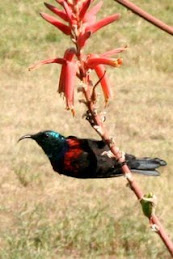
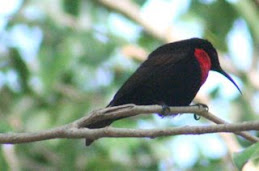
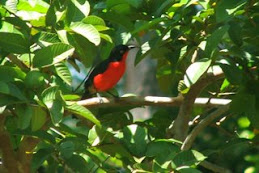
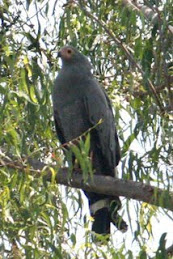






































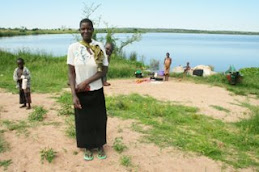

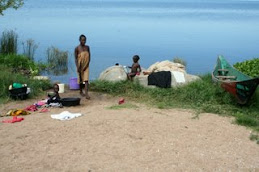

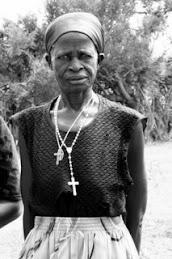






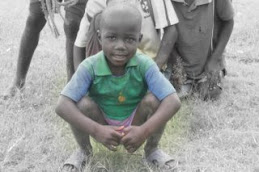


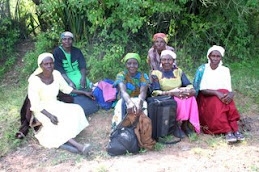

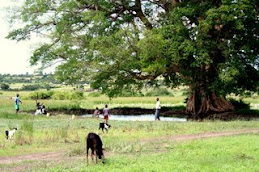
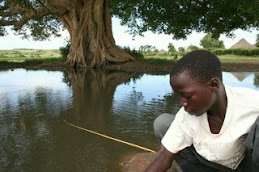
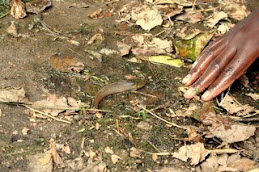



























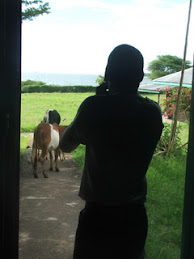

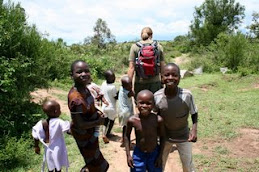











































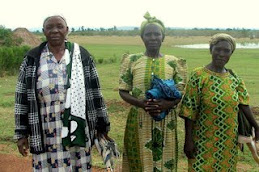

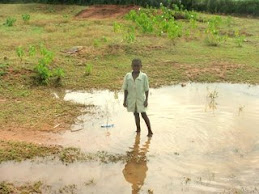

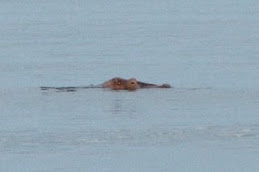



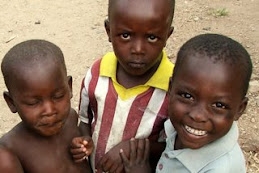


















1 comment:
Wao. Now I'm reading some of the blogs I've missed. The thing that struck me most (there is so much) is 15% HIV positivity rate in the antenatal clinic. That IS a sobering statistic. So glad you are there doing such good work! Jenny
Post a Comment